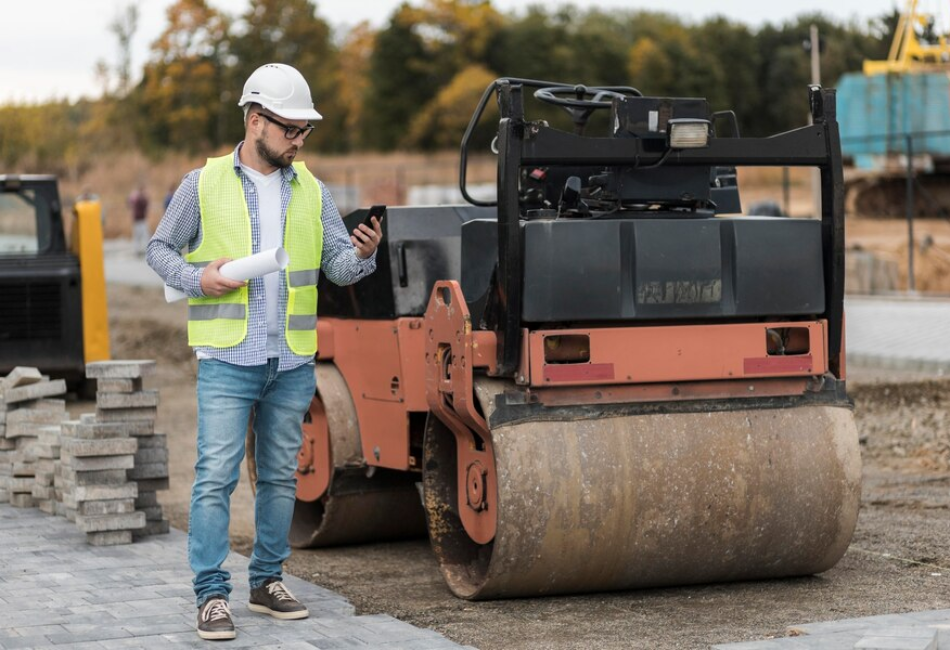The Role of Bulk Tippers in Infrastructure Development
Infrastructure development is a cornerstone of any thriving economy. From roads and bridges to large-scale construction projects, the physical framework of society relies on a well-coordinated supply chain to function effectively. One of the critical components of this supply chain is the use of bulk tippers. These specialized vehicles play a pivotal role in transporting materials essential for infrastructure projects, and their efficient use is a major factor in the timely and cost-effective completion of such developments. This article explores the role of bulk tippers in infrastructure development, their types, benefits, and how advancements in technology have enhanced their functionality.
Understanding Bulk Tippers
Bulk tippers are heavy-duty trucks equipped with large open beds capable of carrying loose bulk materials such as sand, gravel, soil, and construction debris. The design of these vehicles allows the truck bed to be raised at an angle, using a hydraulic mechanism, to tip the material out of the back, hence the name “tipper.”
There are several types of bulk tippers, each designed for specific tasks in construction and infrastructure development. Some of the most common types include:
- Standard Tippers: These trucks have a rear-opening tailgate, making them suitable for transporting materials that need to be unloaded at construction sites. The hydraulic lift allows for precise placement of materials.
- Side Tippers: These trucks have the ability to tip their loads to the side, making them ideal for narrow construction sites where space may be limited. They are also useful when materials need to be dumped over fences or barriers.
- Off-road Tippers: Designed for rugged terrain, off-road tippers are used in locations where roads are under construction or where access is otherwise difficult. These heavy-duty trucks are capable of carrying substantial loads and can handle harsh environments with ease.
- Articulated Tippers: These are often used in large infrastructure projects like mining or large-scale construction sites. Their articulated (jointed) structure allows them to navigate through uneven terrains while carrying massive quantities of materials.
The Importance of Bulk Tippers in Infrastructure Development
Infrastructure projects involve extensive excavation, land grading, and the movement of significant amounts of material. Bulk tippers are indispensable in these tasks for several reasons:
1. Efficient Transportation of Materials
Bulk tippers provide an efficient solution for transporting materials in large quantities. Whether it’s sand, gravel, or other building materials, bulk tippers are designed to carry tons of material in a single trip, reducing the number of trips needed and consequently cutting down on transportation costs.
This efficiency is crucial in large-scale infrastructure projects where time is often a critical factor. The faster materials can be transported to and from the construction site, the quicker the project can be completed. For example, during road construction, bulk tippers can rapidly transport the aggregate materials necessary for paving, ensuring the project moves forward smoothly.
2. Cost-Effectiveness
The ability to transport large quantities of materials in a single trip not only speeds up the process but also reduces fuel consumption, labor costs, and wear and tear on equipment. This is particularly beneficial in large infrastructure projects where cost overruns can quickly spiral out of control.
By using bulk tippers, construction companies can ensure they are minimizing expenses related to logistics and material handling. Additionally, since these trucks can handle large loads, fewer trips are needed, which also reduces the environmental impact, making bulk tippers a more sustainable choice in infrastructure projects.
3. Versatility Across Projects
Bulk tippers are incredibly versatile and can be used across a wide range of infrastructure development projects. From transporting earth during the excavation phase to delivering aggregate for road construction or removing construction debris, these vehicles are designed to handle multiple tasks on-site.
For instance, in road construction, bulk tippers are essential for both the supply and removal of materials. They are used to transport aggregate, asphalt, and other materials necessary for laying the road, while also being instrumental in removing excavated material and debris.
Similarly, in large-scale urban developments, bulk tippers play a crucial role in transporting materials to and from construction sites, helping ensure projects stay on schedule. The ability to operate efficiently on both urban roads and rough terrains makes them indispensable for varied types of projects.
Bulk Tippers and Technological Advancements
The functionality and efficiency of bulk tippers have been significantly enhanced by technological advancements in recent years. Modern bulk tippers are now equipped with a range of technologies that improve safety, efficiency, and environmental performance.
1. Telematics and GPS Integration
One of the most significant advancements is the integration of telematics systems in bulk tippers. These systems use GPS technology to track the movement of the vehicles in real-time, providing fleet managers with valuable data on fuel consumption, driver behavior, and route optimization.
With telematics, fleet operators can monitor the precise location of each bulk tipper, ensuring that the right materials are delivered to the right site on time. This technology also helps in reducing idle time and optimizing routes to minimize fuel consumption and travel time, contributing to more efficient project management.
2. Automation and Driver Assistance Features
Modern bulk tippers are increasingly being equipped with driver assistance features that improve safety and ease of use. For example, automated tipping mechanisms and load sensors ensure that materials are tipped safely and accurately without overloading the vehicle.
Additionally, advancements in automation have led to the development of semi-autonomous or autonomous bulk tippers, which can reduce the reliance on human drivers and improve the precision of material handling.
3. Environmental Considerations
Sustainability is a growing concern in the construction and infrastructure sectors, and bulk tippers are evolving to meet this demand. Many newer models are designed with fuel-efficient engines that reduce emissions, helping companies meet regulatory requirements and reduce their environmental footprint.
Some companies are also experimenting with alternative fuel options for bulk tippers, such as electric or hybrid powertrains, further contributing to sustainability goals in infrastructure development.
The Challenges and Future of Bulk Tippers in Infrastructure Development
While bulk tippers play an indispensable role in infrastructure development, they are not without challenges. One of the main concerns is the increasing regulation around emissions and environmental standards, which can affect the operational costs of running a fleet of bulk tippers.
Additionally, the wear and tear on bulk tippers, especially in challenging environments, means regular maintenance is essential to keep them functioning effectively. The cost of repairs and downtime can be significant, particularly in large infrastructure projects where delays can have a ripple effect on overall timelines.
Looking to the future, bulk tippers are likely to continue evolving with advancements in automation, electrification, and sustainable practices. As the demand for efficient and environmentally friendly construction solutions grows, bulk tippers will play an even more critical role in ensuring infrastructure projects are completed on time, within budget, and with minimal environmental impact.
Conclusion
The role of bulk tippers in infrastructure development cannot be overstated. Their ability to transport large quantities of materials quickly and efficiently makes them essential for projects ranging from road construction to large urban developments. Technological advancements in telematics, automation, and environmental sustainability are further enhancing their capabilities, ensuring that bulk tippers will remain a cornerstone of the infrastructure development process for years to come.
As the world continues to invest in infrastructure to support growing populations and economies, the demand for efficient material transport solutions like bulk tippers will only increase. Whether it’s transporting aggregate for a new highway or clearing debris from a construction site, bulk tippers are a vital tool in the ongoing effort to build the world around us.






